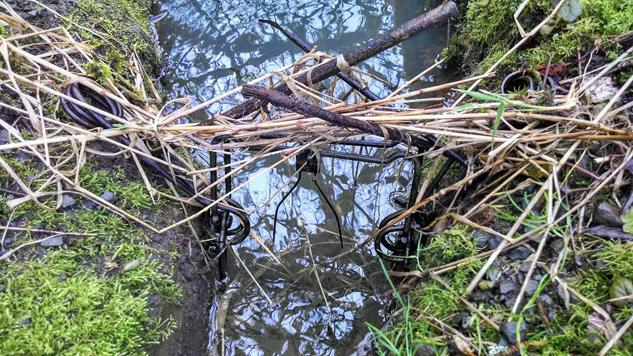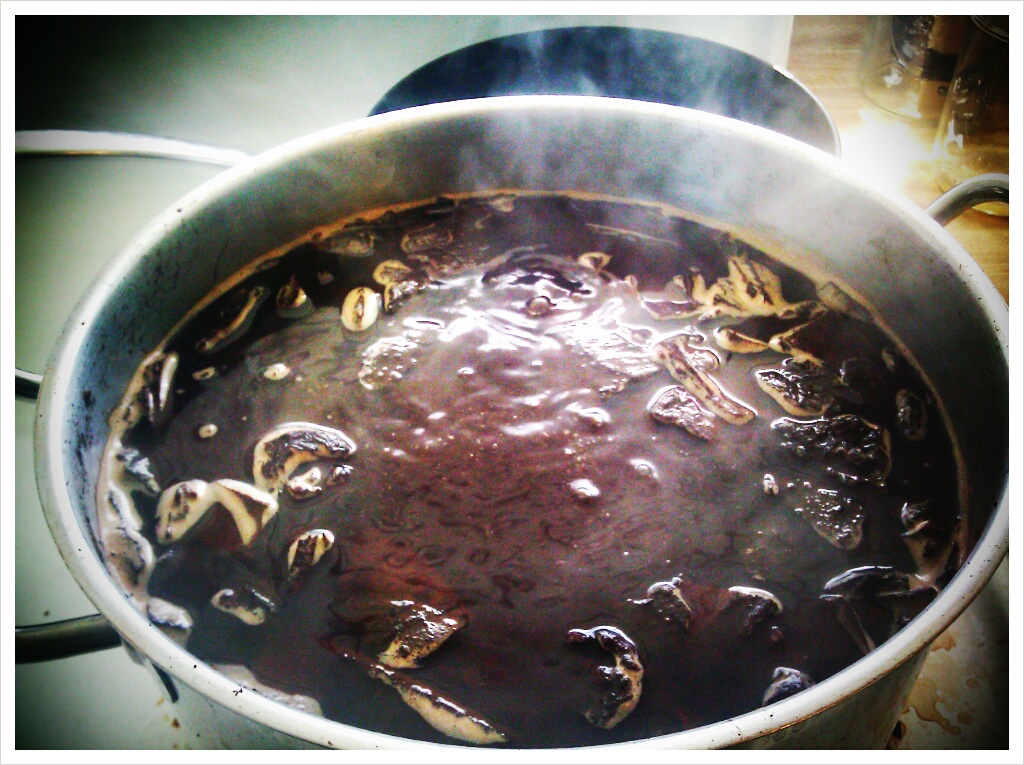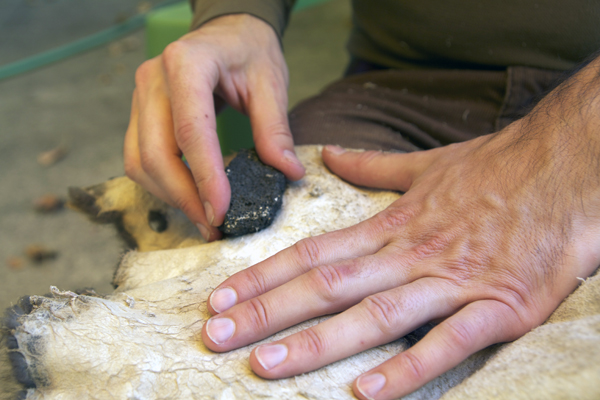Nutria Fur and Food
[scrollGallery id=48]
Description & History
Nutria are semi-aquatic rodents native to South America where they are called “coypu”. During the 1900’s nutria were brought to North America for the purposes of fur and wetland vegetation control. Subsequently they are now considered an “invasive species”. They wreak havoc on embankments in creeks, rivers, and lakes. They muscle out the smaller, native muskrat and compete with local beavers for available resources. In our effort to restore landscapes and utilize invasive species in ancestral arts and crafts, nutria are our friend and ally. They fur is very soft and their hides are small making them fairly easy to tan in one day. Their meat is decent when prepared with care and flavoring.
For more information on the nutria see: http://wdfw.wa.gov/living/nutria.pdf
Classes
Intro to Trapping

|
Trapping is a dying art form. In order to trap animals you must be a skilled tracker, know where to place traps, and you must know the personality of target species so that you don’t trap the wrong animal. You also must know how to set traps in a way to kill the animal as swiftly and humanely as possible. This program is informational only. A professional trapper will teach you the laws and regulations about traps and trapping, how to properly set traps, the history of trapping in the Northwest, and how to make a primitive trap for survival. Please note: NO ACTUAL TRAPPING WILL TAKE PLACE DURING THIS CLASS.
Date: Saturday May 17th
Location: TBA Portland
Tuition: $45
 |
Nutria Processing and Cooking

|
Nutria can taste great if seasoned and prepared correctly. Because of their destructive nature, nutria are not protected. This means they can be taken any time of the year with no limit on the amount that you hunt or trap. This is a cheap, available source of protein. In this class we will process, cook, and eat a fresh nutria killed by one of our trained staff.
Date: Currently Unavailable.
Tuition: $45 |
Hide-Tanning

|
Nutria belly fur is some of the softest fur around. Their hides make great pouches, clothing, hats, and any thing you can use fur for.
Date: Currently Unavailable.
Tuition: $95 |
Nutria Fur and Food
[scrollGallery id=48]
Description & History
Nutria are semi-aquatic rodents native to South America where they are called “coypu”. During the 1900’s nutria were brought to North America for the purposes of fur and wetland vegetation control. Subsequently they are now considered an “invasive species”. They wreak havoc on embankments in creeks, rivers, and lakes. They muscle out the smaller, native muskrat and compete with local beavers for available resources. In our effort to restore landscapes and utilize invasive species in ancestral arts and crafts, nutria are our friend and ally. They fur is very soft and their hides are small making them fairly easy to tan in one day. Their meat is decent when prepared with care and flavoring.
For more information on the nutria see: http://wdfw.wa.gov/living/nutria.pdf
Classes
Intro to Trapping
Date: Saturday May 17th
Location: TBA Portland
Tuition: $45
Nutria Processing and Cooking
Date: Currently Unavailable.
Tuition: $45
Hide-Tanning
Date: Currently Unavailable.
Tuition: $95